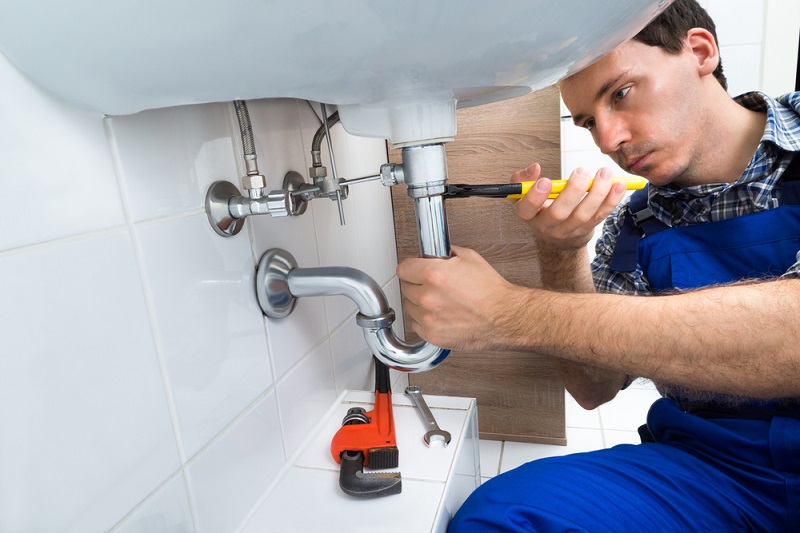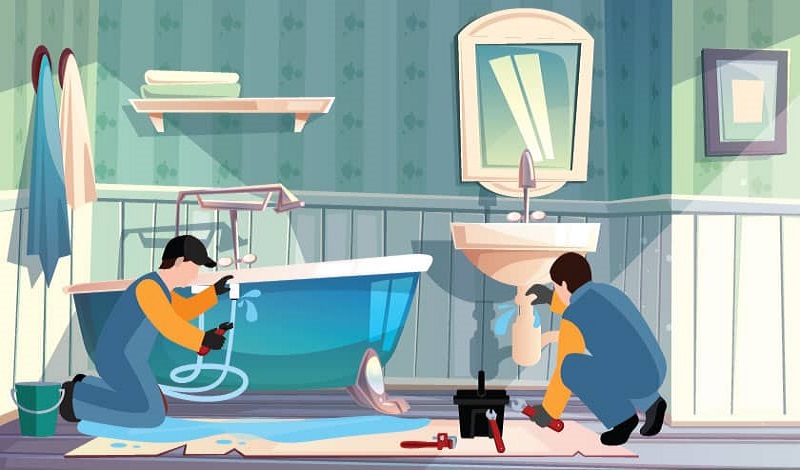A person who constructs manages, and fixes pipe work is referred to as a plumber. They deal with several functions such as water heating systems, drainage, sewage system, and sanitization. Plumbers can work in private homes, commercial buildings, ranches, playgrounds, and other open spaces. Some plumbers work on a farm while some of them start and run their firms as well after gaining experience and knowledge, employing less qualified plumbers to perform for them.
Plumbers are highly experienced professionals in charge of setting up and maintaining water and sewage systems in both homes and businesses. Through a variety of training programs and opportunities for on-the-job training, they gain knowledge about their job. With time and expertise, they become experts in their field. The duties of a professional plumber are described below to know how efficiently they work.

Duties of a plumber:
- Plumbers develop, repair, and maintain the water and gas supply, sewage systems, and other related equipment in commercial and residential buildings. They inspect plumbing systems, pinpoint problems, and repair them as well as offer helpful advice for maintenance.
- Handling any plumbing-related issues in a home, workplace, or other organizations is among a plumber's routine duties.
- Before starting work on a project or repair, provide a preliminary estimate of the expense of the same.
- Locating a plumbing system issue in a business and offering advice on fixes that would assist the owners in sustaining the plumbing systems in the long run.
- A plumber must study the building's plans before beginning any new installation to have a better understanding of the design and how to conduct his work.
- All sanitation connections and fixtures installation fall under the purview of a plumber's job description.
- A plumber must regularly examine all sanitary fittings to determine their strengths and any durability problems to ensure their long lifespan.
- A plumber's job description includes fixing all sanitation-related equipment and water sources.
How to become a professional plumber?
Although the route to becoming a plumber may appear straightforward, it is not. To become a certified plumber, you need to take plumbing training and have a lot of credentials and licenses, and even then, it requires years of practice to become the best in your field. The following are the major obstacles one must face before becoming a plumber:
- Even though the majority of plumbing roles do not require a formal upper secondary education certificate, many respected companies favor individuals who have achieved their higher secondary degrees. Plumbers should be able to understand the foundations of scientific knowledge, technology, and mathematics. Having proficiency with computer-aided drafting tools is advantageous for plumbing work.
- Also, through vocational education, a candidate gets ready for jobs involving manual work or practical work. These programs are typically not academic and are associated with a particular industry or job. It is sometimes referred to as technical education since the student develops a skill set associated with a variety of manual labor-related activities or practices. These certifications often cost less than undergrad engineering, management, etc. degrees.
- Plumbers utilize certifications as evidence of their technical expertise and pertinent expertise in the plumbing industry. Having a certificate shows their genuineness and efficiency of work. The candidates are instructed by training partners using a variety of curricula. A candidate receives accreditation testifying to their fitness to carry out several plumbing-related duties in conformity with international standards after being reviewed by an assessment body.
- After getting the plumbing certification, the candidate must continue to accumulate experience as a plumber. It's a good idea to keep increasing your industry expertise. Plumbing specialists who want to develop in their professions must constantly pick up new skills and stay abreast of best practices in the field. This might progress the candidate's career and result in higher levels of competence, pay, and benefits.

Conclusion:
Plumbing is a sophisticated yet seemingly easy profession however practice and knowledge result in better work. Plumber must operate in Dema Plumber circumstances, investigate a wide range of problems, and produce technical and innovative solutions quickly. Sometimes a plumber's projects might take longer than six or eight months to complete. In exact correlation to their amount of experience, their compensation increases. Around the world, the majority of plumbers earn between $150 and $200 each month. Their pay rises in direct proportion to their level of experience.




0 Comments